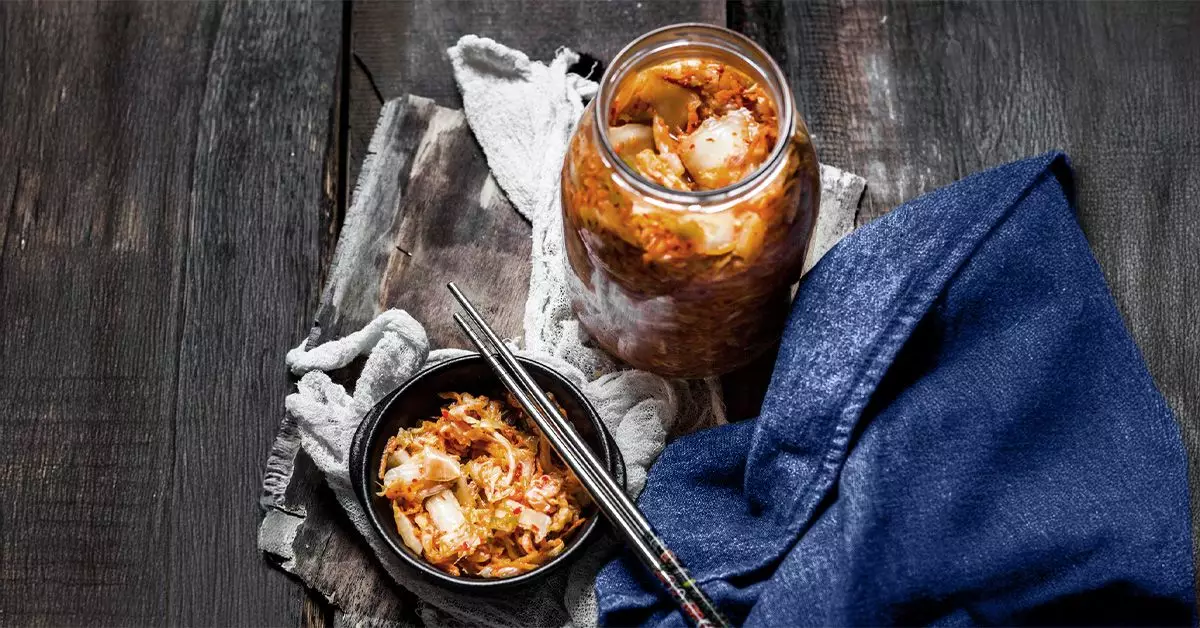Kimchi, deeply embedded in Korean culture, transcends mere culinary boundaries to embody tradition, health, and identity. This fermented dish, predominantly made from vegetables like napa cabbage and radish, has garnered global recognition for its purported probiotic and nutritional benefits. For millions, including a significant Korean American demographic, daily consumption of kimchi is a rite of passage. Yet, as its popularity surges, so does concern regarding its connection to potential health risks, specifically gastric cancer. This brings forward a critical discussion about the intersection of cultural heritage and health advocacy.
The Contradiction of Health Benefits and Risks
While kimchi boasts an array of health-promoting properties, including high vitamin levels and probiotic support, some studies hint at a darker side. A staggering statistic reveals that Korean Americans face stomach cancer risks that are over twelve times greater than their non-Hispanic white counterparts. The prevailing hypothesis centers on the high salt content typical of kimchi, a known risk factor for gastric cancer. A meta-analysis conducted in 2020 highlighted how even modest increases in pickled vegetable intake—just 40 grams a day—could elevate gastric cancer risk by 15%. This raises pertinent questions: Are we overlooking the risks associated with one of our most cherished foods?
The Role of Salt and Fermentation
Digging deeper, the fermentation process integral to kimchi production introduces both beneficial and adverse components into the diet. The fermentation of vegetables not only increases the availability of probiotics but can also engender the production of harmful enzymes. Research indicates that certain lactic acid bacteria in kimchi may produce enzymes like beta-glucuronidase, linked to cancer progression. The seeming paradox of kimchi, a health food championed for its probiotics, transforming into a potential carcinogen underscores the necessity for a nuanced understanding of traditional foods within modern dietary frameworks.
H. Pylori: A Hidden Player in Gastric Cancer Rates
While diet plays a crucial role, one cannot ignore the significant impact of Helicobacter pylori (H. pylori) infection—a potent contributor to gastric inflammation and cancer. In Asian countries, the prevalence of H. pylori can reach as high as 80%, contrasting sharply with the 10% to 20% prevalence observed in the United States. This disparity compounds the challenge of attributing stomach cancer solely to dietary factors. As such, it’s vital to consider the complex interplay between diet, infectious agents, and genetic predisposition in understanding gastric cancer risk.
The Need for Enhanced Screening and Awareness
Despite the increasing recognition of stomach cancer as a significant health threat, routine screening among the general population remains scarce in the U.S. Only individuals deemed high-risk are typically advised to undergo screening, which often includes noninvasive tests for H. pylori detection. This approach begs the question: should broader screening protocols be implemented to catch early signs of gastric cancer, especially among high-risk populations? Keeping the public informed about their cancer risks is paramount, yet the conversation often remains dormant in the realm of public health.
Personal Reflection: The Cultural vs. Health Debate
Navigating the waters of culinary tradition and health risk can feel like a tightrope walk. As someone who cherishes diverse culinary practices, I find myself torn between advocating for traditional foods that form the crux of cultural identities and recognizing the imperative for health consciousness. Kimchi, while replete with many health benefits, should be consumed mindfully, with an awareness of its sodium content and the potential implications for gastric health. Conversations about food must evolve to embrace both tradition and scientific evidence, enabling individuals to make informed dietary choices that honor their heritage while prioritizing their health.
The dialogue surrounding kimchi is emblematic of larger conversations in nutrition, where the benefits of dietary choices dance closely with potential hazards. It’s time to advocate for a balanced perspective—one that respects culture but also insists on health in a world where dietary choices have increasingly profound implications.

